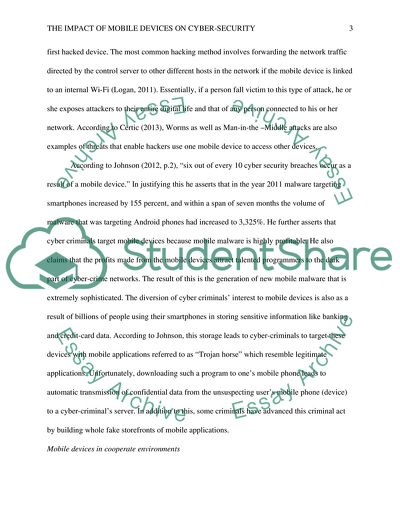Cite this document
(The Impact of Mobile Devices on Cyber-security Coursework Example | Topics and Well Written Essays - 1250 words, n.d.)
The Impact of Mobile Devices on Cyber-security Coursework Example | Topics and Well Written Essays - 1250 words. https://studentshare.org/information-technology/1841900-research-supported-essay-on-the-impact-of-mobile-devices-on-cybersecurity
The Impact of Mobile Devices on Cyber-security Coursework Example | Topics and Well Written Essays - 1250 words. https://studentshare.org/information-technology/1841900-research-supported-essay-on-the-impact-of-mobile-devices-on-cybersecurity
(The Impact of Mobile Devices on Cyber-Security Coursework Example | Topics and Well Written Essays - 1250 Words)
The Impact of Mobile Devices on Cyber-Security Coursework Example | Topics and Well Written Essays - 1250 Words. https://studentshare.org/information-technology/1841900-research-supported-essay-on-the-impact-of-mobile-devices-on-cybersecurity.
The Impact of Mobile Devices on Cyber-Security Coursework Example | Topics and Well Written Essays - 1250 Words. https://studentshare.org/information-technology/1841900-research-supported-essay-on-the-impact-of-mobile-devices-on-cybersecurity.
“The Impact of Mobile Devices on Cyber-Security Coursework Example | Topics and Well Written Essays - 1250 Words”. https://studentshare.org/information-technology/1841900-research-supported-essay-on-the-impact-of-mobile-devices-on-cybersecurity.


